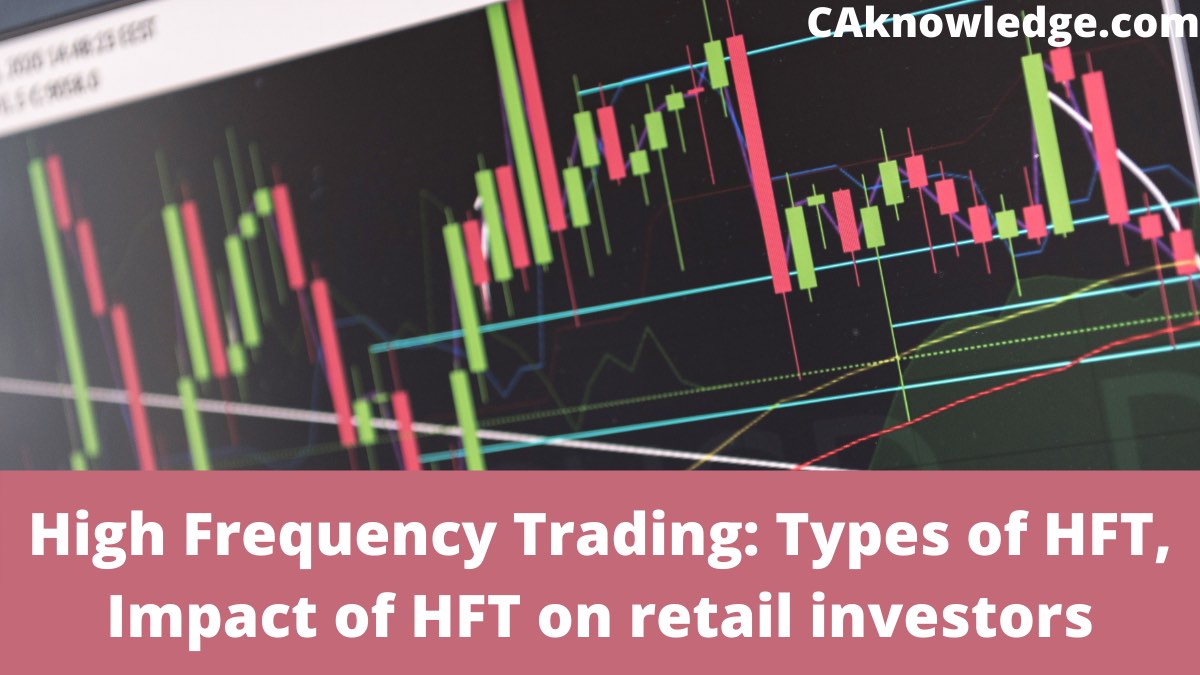High Frequency Trading is one of the specialized methods of algorithmic trading. As per the Securities and Exchanges Commission of the United States High Frequency Trading involves the following:
- The use of extremely sophisticated and high-speed computer programs for generating, routing, and executing orders
- The use of individual data feeds from exchanges as well as co-located servers in order to minimize network and other types of latencies.
- Maintaining very short timeframes for establishing and liquidating positions, resulting in the frequent turnover of many small positions in one or more financial instruments
- Submitting a number of orders that are canceled soon after submission
- Maintaining very few, if any, overnight positions.
Types of High Frequency Trading (HFT):
1. Proprietary trading firms:
These are the firms which engage in high frequent trading using their own money. The risks and rewards are shared by the partners of the firm. Many of these firms act as market makers; generating and executing buy and sell orders automatically throughout the day
2. Subsidiary firms:
These types of high frequency trading firms are actually the subsidiaries of the brokerage firms. They designate a separate desk for high frequency trading.
3. Hedge funds:
These High frequent trading firms whose main focus is to make profit using strategic arbitrage. They make the revenue out of the price discrepancies across securities and other asset classes
Advertisement
Content in this Article
How do High Frequency Traders make profits?
1. Market making:
High Frequency Trading involves market making i.e. they place the buy order as well as the sell order with a price band that involves carefully calculated spread. Buy order is placed at a price slightly lower than the existing price whereas the sell orders are placed at prices that are slightly higher than the existing price. These buy and sell orders are executed at very dazzling speed by the sophisticated computers using complex programs. This way, the large transactions involving the minuscule spread will eventually result in huge profits to the High Frequency Trading firms.
2. Paid by stock exchanges and ECNs:
In the countries like US and UK where High-Frequency Trading forms part of huge share of the total market transactions, High Frequency Trading firms are paid by some stock exchanges, electronic communication network (ECN) that facilitate the trading of financial products outside stock exchanges for providing the liquidity
3. Arbitrage:
High Frequency Trading firms make money out of the price discrepancies between securities on different exchanges or different asset groups in the market. This strategy is widely called as arbitrage in the financial world.
Impact of HFT on retail investors:
Many studies that were conducted in the United States have revealed that HFT traders make more money when they execute the orders with retail investors. This could be because of the advantage that the complex computer programs offer to the HFT in responding to the changes occurring in the market. Further, the retail investors will go with the artificial demand and supply that are controlled by the HFT who place the buy and sell orders just to gain out of the spread.
Recommended Articles
- What are the ways in which an IPO can be initiated ??
- What is listing, its Importance and Benefits of listing
- SME IPO – BSE’s SME Exchange and NSE’s Emerge
- Are you an SME? Know your Eligibility
- What is IPO Grading?
- What does the Recognised Stock Exchange do ?
- Different Types of Orders Placed in Stock Market
- Delisting of Shares
- Earnings Per Share (EPS)
- List of Stock Exchanges in India


